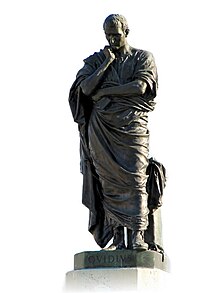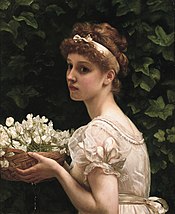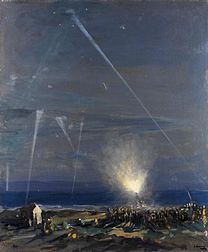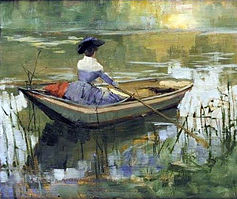Dear Zazie, Here is today’s Lovers’ Chronicle from Mac Tag. Do you have a man or woman in the city? Rhett
The Lovers’ Chronicle
Dear Muse,
how convenient
we were just talkin’
about this at Frühlingsfest
“On a beautiful, if chilly day”
we saw some fine art
“But mostly of animals or things”
so it seems to me
the purpose of art
is to capture beauty
and there is but one
true example,
with all due respect
to what Mallarmé wrote
*as my hand moves over
your hair and down your back*
“Ooh that gave me chills”
© copyright 2023 mac tag/cowboycoleridge all rights reserved
thou offspring of blue on white,
who after birth by my side remains,
not to be snatched from thence
by anyone, less wise than right,
with this, expos’d for you to find,
my ramblin’s should call to thee,
i cast about, as one fit for light,
thy visage in my sight, finest kind
© copyright 2022 mac tag/cowboycoleridge all rights reserved
found in you
all that could be wanted
in the brisk
slow surrender
of late winter,
your smile,
your eyes,
the curve
of your hip…
whatever else
my life is
with its movies
and verse
its music
and art
it matters most
with you in it
© 2021 mac tag/cowboycoleridge all rights reserved
© copyright 2020 mac tag/cowboy coleridge all rights reserved
in the brisk
slow surrender
of late winter,
think of you
your smile,
your eyes,
the curve
of your hip…
missin’
what was
whatever else
my life is
with its books
and verse
its music
and art
and wide
open spaces,
it only matters
with you in it
© copyright 2019 mac tag/cowboy coleridge all rights reserved
thus either
without you
or with you
whether stealin’ in dreams
or enterin’ memories
whichever,
i will have as may
as it shall be
for the soi-disant poet
and the Carolina woman
© copyright 2018 mac tag/cowboy coleridge all rights reserved
Another from the archives. Hope you enjoy……
Woman in Carolina
Somewhere
a woman
has risen from sleep
startin’ her day
in the Carolinas
In the brisk
and slow surrender
of late winter,
I think of her
Her pretty smile,
her eyes, her grace,
her pert glances,
the curve of her hip…
it is to swoon
there is no question
How I miss this woman
I think of her
shinin’
to chase away
doubt and darkness
Whatever else
my life is
with its books
and its words
and its wide open spaces,
it is also this dazzlin’ donna
livin’ in Carolina,
capturin’ the light
© 2012 Cowboy Coleridge. All rights reserved
The Song of the Day is “Jet City Woman” by Queensrÿche. We do not own the rights to this song. All rights reserved by the rightful owner. No copyright infringement intended.
| Ovid | |
|---|---|

Statue (1887) by Ettore Ferrari
commemorating Ovid’s exile in Tomis (present-day Constanța, Romania) |
|
Today is the birthday of Publius Ovidius Naso (Sulmo; 20 March 43 BC – AD 17/18 Tomis, Scythia Minor, Roman Empire), known as Ovid in the English-speaking world; Roman poet who lived during the reign of Augustus. He was a contemporary of the older Virgil and Horace, with whom he is often ranked as one of the three canonical poets of Latin literature. The Imperial scholar Quintilian considered him the last of the Latin love elegists. He enjoyed enormous popularity, but, in one of the mysteries of literary history, was sent by Augustus into exile in a remote province on the Black Sea, where he remained until his death. Ovid himself attributes his exile to carmen et error, “a poem and a mistake”, but his discretion in discussing the causes has resulted in much speculation among scholars.
The first major Roman poet to begin his career during the reign of Augustus, Ovid is perhaps best known for the Metamorphoses, a 15-book continuous mythological narrative written in the meter of epic, and for works in elegiac couplets such as Ars Amatoria (“The Art of Love”) and Fasti. His poetry was much imitated during Late Antiquity and the Middle Ages, and greatly influenced Western art and literature. The Metamorphoses remains one of the most important sources of classical mythology.
Verse
Remedia Amoris (The Cure for Love)
- Siquis amat quod amare iuvat, feliciter ardens
Gaudeat, et vento naviget ille suo.
At siquis male fert indignae regna puellae,
Ne pereat, nostrae sentiat artis opem.- Let him who loves, where love success may find,
Spread all his sails before the prosp’rous wind;
But let poor youths who female scorn endure,
And hopeless burn, repair to me for cure.- Lines 13-16
- Let him who loves, where love success may find,
- Principiis obsta; sero medicina paratur
Cum mala per longas convaluere moras.- Resist beginnings; the remedy comes too late when the disease has gained strength by long delays.
- Lines 91–92
- Resist beginnings; the remedy comes too late when the disease has gained strength by long delays.
- Qui finem quaeris amoris,
Cedit amor rebus; res age, tutus eris.- Love yields to business. If you seek a way out of love, be busy; you’ll be safe then.
- Lines 143–144
- Love yields to business. If you seek a way out of love, be busy; you’ll be safe then.
Amores (Love Affairs)
- Militat omnis amans
- Every lover is a soldier.
- Book I; ix, line 1
- Every lover is a soldier.
- Qui nolet fieri desidiosus, amet!
- Let who does not wish to be idle fall in love!
- Book I; ix, 46
- Let who does not wish to be idle fall in love!
- Procul omen abesto!
- Far away be that fate!
- Book I; xiv, 41
- Far away be that fate!
- Aequo animo poenam, qui meruere, ferunt.
- They bear punishment with equanimity who have earned it.
- Book II, vii, 12
- They bear punishment with equanimity who have earned it.
- Quod licet ingratum est. Quod non licet acrius urit.
- We take no pleasure in permitted joys.
But what’s forbidden is more keenly sought.- Book II; xix, 3
- We take no pleasure in permitted joys.
- Cui peccare licet, peccat minus.
- Who is allowed to sin, sins less.
- Book III, iv
- Who is allowed to sin, sins less.
- Nitimur in vetitum semper, cupimusque negata.
- We are ever striving after what is forbidden, and coveting what is denied us.
- Variant translation:
We hunt for things unlawful with swift feet,
As if forbidden joys were only sweet.- Book III; iv, 17
- Sic ego nec sine te nec tecum vivere possum.
- So I can’t live either without you or with you.
- Variant translation: Thus, I can neither live without you nor with you.
- Book III; xib, 39
Ars Amatoria (The Art of Love)
- Spectatum veniunt, veniunt spectentur ut ipsae.
- They come to see; they come that they themselves may be seen.
- Book I, 99
- They come to see; they come that they themselves may be seen.
- Nocte latent mendae, vitioque ignoscitur omni,
Horaque formosam quamlibet illa facit.- Blemishes are hid by night and every fault forgiven; darkness makes any woman fair.
- Book I, 249–250
- Blemishes are hid by night and every fault forgiven; darkness makes any woman fair.
- Iuppiter ex alto periuria ridet amantum.
- Jupiter from above laughs at lovers’ perjuries.
- Book I, 633
- Jupiter from above laughs at lovers’ perjuries.
- Expedit esse deos, et, ut expedit, esse putemus.
- It is convenient that there be gods, and, as it is convenient, let us believe that there are.
- Book I, 637
- It is convenient that there be gods, and, as it is convenient, let us believe that there are.
- Intret amicitiae nomine tectus amor.
- Let love steal in disguised as friendship.
- Variant: Love will enter cloaked in friendship’s name.
- Book I, line 720; translated by J. Lewis May in The Love Books of Ovid, 1930
- Ut ameris, amabilis esto.
- If you want to be loved, be lovable.
- Variant: To be loved, be lovable.
- Book II, 107
- Pauperibus vates ego sum, quia pauper amavi;
Cum dare non possem munera, verba dabam.- I am the poor man’s poet; because I am poor myself and I have known what it is to be in love. Not being able to pay them in presents, I pay my mistresses in poetry.
- Book II, lines 165-166; translation by J. Lewis May
- I am the poor man’s poet; because I am poor myself and I have known what it is to be in love. Not being able to pay them in presents, I pay my mistresses in poetry.
- Cede repugnanti; cedendo victor abibis.
- Yield to the opposer, by yielding you will obtain the victory.
- Book II, 197
- Yield to the opposer, by yielding you will obtain the victory.
- Militiae species amor est.
- Love is a kind of warfare.
- Book II, line 233
- Love is a kind of warfare.
- Da requiem: requietus ager bene credita reddit
- Grant a respite: a rested field gives a better return.
- Book II, line 351 [1]
- Grant a respite: a rested field gives a better return.
- Nil adsuetudine maius.
- Nothing is stronger than habit.
- Variant translations: Nothing is more powerful than custom.
- Book II, 345
- Continua messe senescit ager.
- A field becomes exhausted by constant tillage.
- Book III, 82
- A field becomes exhausted by constant tillage.
- Candida pax homines, trux decet ira feras.
- Let white-robed peace be man’s divinity; rage and ferocity are of the beast.
- Book III, 502
- Let white-robed peace be man’s divinity; rage and ferocity are of the beast.
- Casus ubique valet; semper tibi pendeat hamus
Quo minime credas gurgite, piscis erit.- Chance is always powerful. Let your hook always be cast; in the pool where you least expect it, there will be fish.
- Book III, 425
- Chance is always powerful. Let your hook always be cast; in the pool where you least expect it, there will be fish.

Today is the birthday of Edward John Poynter (Paris 20 March 1836 in Paris – 26 July 1919 in London); painter, designer, and draughtsman who served as President of the Royal Academy.
Gallery


-

At Low Tide
-

The Siren (1864)
-

The Cave of the Storm Nymphs (1903)
-

Psyche in the Temple of Love
-

Corner of the Marketplace (1887)
-

Pea Blossoms
| John Lavery | |
|---|---|
 |
|
Today is the birthday of John Lavery (Belfast 20 March 1856 – 10 January 1941 Kilmoganny, County Kilkenny); painter best known for his portraits and wartime depictions.
Lavery’s first wife, Kathleen MacDermott, whom he married in 1889, died of tuberculosis in 1891. After eight years as a widower, he remarried. In 1909, Lavery married Hazel Martyn (1886–1935), an Irish-American known for her beauty and poise; with her he had one step-daughter, Alice Trudeau (Mrs. Jack McEnery). Hazel Lavery was to figure in more than 400 of her husband’s paintings. Hazel Lavery modelled for the allegorical figure of Ireland he painted on commission from the Irish government, reproduced on Irish banknotes from 1928 until 1975 and then as a watermark until the introduction of the Euro in 2002. The Laverys’ marriage was tempestuous, and Lady Lavery reportedly was unfaithful.
Sir John Lavery died in Rossenarra House from natural causes, and was interred in Putney Vale Cemetery.
Gallery



-

War Room – depicts surrender of High Seas Fleet 1918
-

Munitions, Newcastle, 1917
-

A Coast Defence – an 18-pounder anti-aircraft gun, Tyneside, 1917
-

A Convoy, North Sea, 1918
-

The Wounded at Dover, 1918
-

Army Post Office 3, Boulogne, 1919
-

A Rally, 1885
-

Lady Lavery
-

Mrs Lavery sketching, 1910
-

Gaines Ruger Donoho
-

A Summer Afternoon
-

On the Riviera
-

Mrs Ralph Peto as a Bacchante
-
The Opening of the Modern Foreign and Sargent Galleries at the Tate Gallery, 26 June 1926
mac tag
Follow us on twitter: @cowboycoleridge


No Comments on "The Lovers’ Chronicle 20 March – woman – verse by Ovid – art by Edward Poynter & John Lavery"